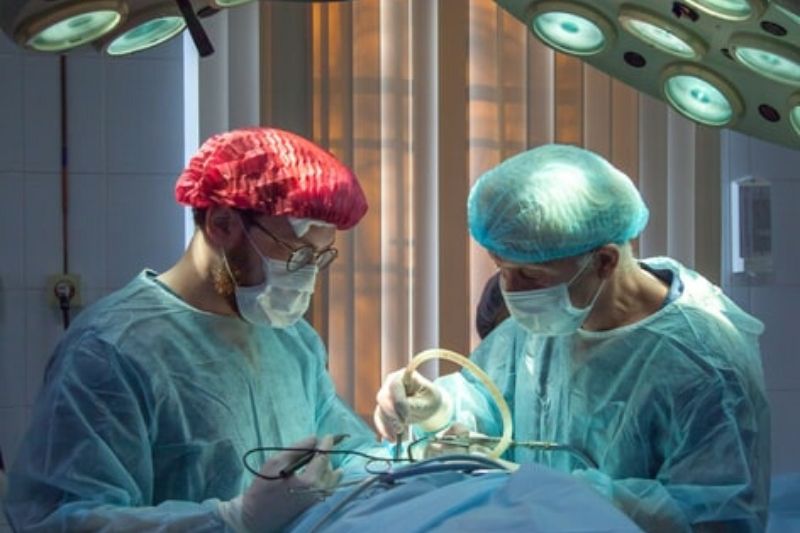No products in the cart.
How Much Does Plastic Surgery Cost?

People considering plastic surgery are often turned off by the potential price, but prices vary more than most people realize—and thanks to advancements in care and more flexible payment options, plastic surgery is more affordable than ever. (Image Credit: Olga Guryanova/Unsplash)
So how much does plastic surgery really cost, and is it something you can afford?
Prioritizing Safety
First, you should understand that in many cases, the cost of plastic surgery is correlated with the experience of the person performing it, the type of equipment used, and the relative safety of the procedure. You may, for example, be able to find a person willing to complete a plastic surgery procedure ridiculously cheaply—but there may be much higher risks associated with the procedure.
No matter what, safety should be your priority. It’s always worth paying more for a procedure if it means you’ll have access to a better standard of care before, during, and after the work.
Average Prices for Plastic Surgery
Let’s take a look at some of the most common types of plastic surgery, and how much they cost, on average, across the nation:
- Breast augmentation: $6,450
- Facelift: $12,125
- Liposuction: $6,025
- Smartlipo: $4,750
- Rhinoplasty: $7,475
- Tummy Tuck: $8,150
- Body lift: $15,125
- Breast lift: $7,925
- Brow lift: $7,150
- Chin augmentation: $4,525
- Labiaplasty: $4,025
- Lip implants: $2,500
- Otoplasty: $4,150
- Breast reduction: $7,250
- Gynocomastia treatment: $5,475
As you can see, basic procedures cost a few thousand dollars on average, with more advanced, intensive procedures extending upwards of $15,000. Note that these are merely averages, and you may be able to find prices much higher or lower than these benchmarks.
The Breakdown of Your Bill
It may seem like a lot of money for a relatively simple procedure, but keep in mind your total amount owed is accounting for many different things, including:
- Surgeon fees. The most obvious portion of the fee is the amount getting paid to the surgeon actually performing the procedure. Your surgeon will be responsible for conducting highly skilled, intensive work, often for several hours—and don’t forget how much time they’ll spend prepping and following up with you.
- Costs of materials. You’ll also need to pay for the materials involved. For example, if you’re having breast augmentation surgery, you’ll need to pay for the implants themselves.
- Anesthesia is one of the most important elements of a successful surgery, so you’ll need to have a dedicated anesthesiologist on hand during the procedure.
- Operating rom fees. You may also need to pay an assortment of fees for the operating room, including renting the space and equipment, paying for staffing, and other similar costs.
- Medications and/or follow-up needs. The average costs of procedures include the costs of follow-up care, like compression devices, and medications, like pain killers.
- Further appointments. Your price will also include the possibility of follow-up appointments, to make sure the surgery went as intended. In some cases, you may need additional “touch up” work; this is usually included in the price.
Variables That Affect Price
These prices tend to change based on several variables, including:
-
Surgeon experience and reputation. It should go without saying that surgeons who have more experience, and those who have a better-established reputation tend to charge more money than their inexperienced or unproven counterparts. When looking at accolades and awards, Nubody Concepts is certainly in contention for the best plastic surgeon in Nashville, TN. Nubody Concepts has won numerous awards over the last 10 years, with their most recent award being “Best Plastic Surgeon” in the 2021 Best of Williamson awards.
- The price for surgery will vary depending on location, both to account for demand and to reflect differences in spending power. Downtown L.A. will carry higher prices than rural Iowa.
- Operating room. Different hospitals will have different types of fee structures for their operating rooms; these costs can therefore vary drastically.
- Material quality. You’ll probably have a wide range of options for the types of materials used for your surgery. Higher-quality, more reliable materials tend to be more expensive.
- Additional guarantees and support. Some surgeons may charge more because they offer unlimited follow-ups, touch-ups, or support for their work.
Financing Options
If you’re interested in a plastic surgery procedure, but it doesn’t look like the kind of thing you could afford under ordinary circumstances, be advised that most plastic surgeons are willing to work with you on a flexible payment plan, or an alternative financing option.
For example, you may be able to make a modest monthly payment for a period of months to years to pay off your surgery. There may also be alternative options to get you similar results for less money; you’ll need to talk to a plastic surgeon to learn more.
You may also need to pay an assortment of fees for the operating room, including renting the space and equipment, paying for staffing, and other similar costs. Title loans can be a great way to get the quick cash you need to pay for those fees upfront.
Plastic surgery is safer, more accessible, and less expensive than ever before. It’s no longer something reserved only for the wealthy elite; in fact, thanks to flexible financing options, even middle-class patients can often comfortably afford these procedures.
However, before you move forward, it’s important to understand the risks and potential benefits of each procedure, and account for all the variables that could impact your final costs and results.















Leave a Reply